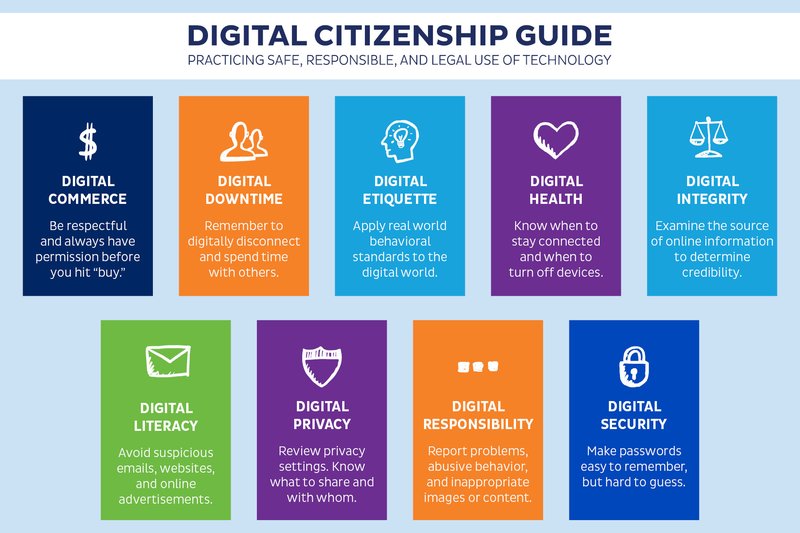· Parenting Tips · 5 min read
Faithful Tech Parenting: 5 Ways to Manage Screen Time and Instill Digital Responsibility in Christian Kids
Discover how Christian parents can navigate technology use with faith-based principles. Learn about setting boundaries, monitoring online activities, and teaching digital responsibility to kids in this insightful article. Explore Christian apps for kids and find tips on balancing technology and faith.

Faithful Tech Parenting: 5 Ways to Manage Screen Time and Instill Digital Responsibility in Christian Kids
In today’s digital age, managing screen time and instilling digital responsibility in children can be a challenge for any parent. However, for Christian parents, it is essential to find ways to balance technology usage while also nurturing their child’s faith. This article will provide five key strategies for faithful tech parenting, offering practical tips on setting boundaries for screen time, monitoring online activities of children, teaching digital responsibility to kids, balancing technology and faith, and recommending Christian apps for kids.
1. Setting Boundaries for Screen Time
Setting boundaries for screen time is crucial in ensuring that children do not become overly dependent on technology. According to the American Academy of Pediatrics, it is recommended that children aged 2 to 5 have no more than one hour of high-quality programming per day. Beyond that age range, consistent limits should be set to ensure that screen time does not interfere with other healthy behaviors such as sleep and physical activity [^source1].
To implement these boundaries effectively, consider establishing specific time limits for device usage. Communicate these limits clearly with your child and explain the reasons behind them. Encourage alternative activities such as reading, outdoor play, or engaging in hobbies that align with your Christian values. By setting boundaries for screen time, you can create a healthier balance between technology and other aspects of your child’s life.
2. Monitoring Online Activities of Children
As a faithful tech parent, it is essential to monitor your child’s online activities to protect them from potential dangers and ensure they are exposed to appropriate content. Implementing parental controls and using internet filters can help restrict access to inappropriate websites or apps [^source5]. Additionally, regularly checking your child’s browsing history and social media accounts can provide insights into their online behavior.
Engage in open communication with your child about the importance of responsible internet use. Teach them about potential risks and how to navigate online spaces safely. Encourage them to come to you with any concerns or questions they may have about their online experiences. By actively monitoring and engaging in conversations about online activities, you can guide your child towards making responsible choices in the digital world.
3. Teaching Digital Responsibility to Kids
One of the most crucial aspects of faithful tech parenting is instilling digital responsibility in your children. As a Christian parent, you can teach your child to prioritize values such as kindness, respect, and integrity while using technology.
Start by educating them about the potential consequences of their actions online. Teach them about the importance of respecting others’ privacy and avoiding cyberbullying or engaging in harmful behavior. Encourage them to think critically about the content they consume and share, emphasizing the importance of discernment and filtering out inappropriate or misleading information.
Lead by example in your own digital habits. Show your child how to use technology responsibly by demonstrating healthy screen time limits, respectful online interactions, and discerning content consumption. By teaching digital responsibility, you can empower your child to make ethical choices in their digital lives.
4. Balancing Technology and Faith
As a faithful tech parent, finding ways to balance technology and faith is essential. While technology can provide numerous benefits and opportunities for learning, it is crucial to ensure that it does not overshadow or conflict with your family’s spiritual values.
Encourage your child to use technology in ways that align with their faith. Seek out Christian apps, websites, or educational programs that promote biblical teachings or values [^source6]. Explore interactive Bible study apps or devotional resources specifically designed for children. Incorporate technology into family worship by using digital devotionals or streaming church services.
However, it is also important to establish offline activities that strengthen your child’s faith. Encourage regular family Bible study, prayer time, and participation in church activities. Emphasize the value of face-to-face interactions and personal connections within your faith community. By striking a balance between technology and faith, you can ensure that your child’s spiritual growth remains a priority.
5. Christian Apps for Kids
In the vast world of apps, there are numerous options available for Christian kids that can help deepen their understanding of faith and biblical teachings. These apps can serve as valuable tools for parents seeking to instill digital responsibility while nurturing their child’s Christian values.
One popular Christian app for kids is “The Bible App for Kids” which offers interactive stories from the Bible in an engaging and age-appropriate format. It includes colorful illustrations, games, and quizzes that help children grasp biblical concepts [^source10].
Another notable app is “Superbook Kids Bible,” which provides animated Bible stories, games, and quizzes. This app encourages children to explore the Bible while engaging with interactive content [^source10].
Furthermore, “Guardians of Ancora” is an app that combines biblical storytelling with exciting gameplay. It allows children to embark on adventures while learning important lessons from the Bible [^source10].
These apps provide a safe and educational digital environment that aligns with Christian values. By incorporating such apps into your child’s screen time, you can encourage them to engage with their faith in an interactive and enjoyable way.
In conclusion, faithful tech parenting involves finding a balance between screen time management and nurturing your child’s faith. By setting boundaries for screen time, monitoring online activities, teaching digital responsibility, balancing technology with faith, and utilizing Christian apps for kids, you can guide your child towards responsible technology usage while fostering their spiritual growth. Remember to lead by example and engage in open communication to provide a solid foundation for your child’s digital journey in line with your Christian values.



